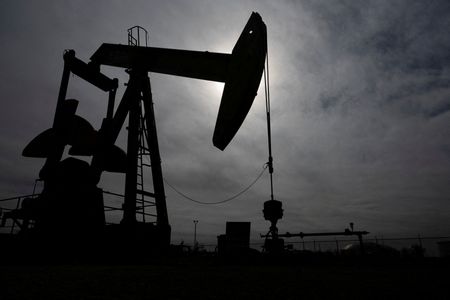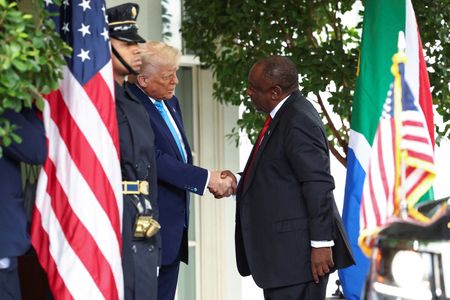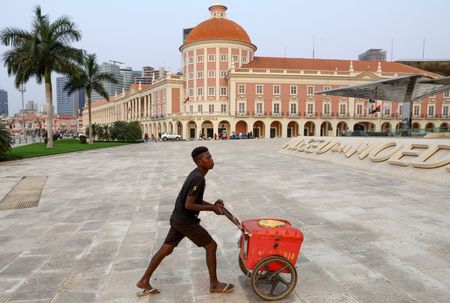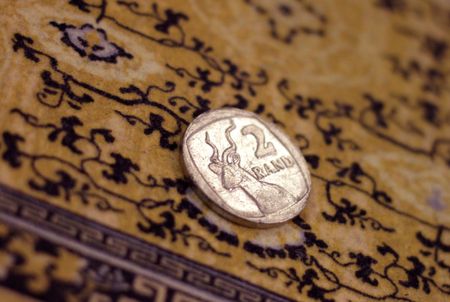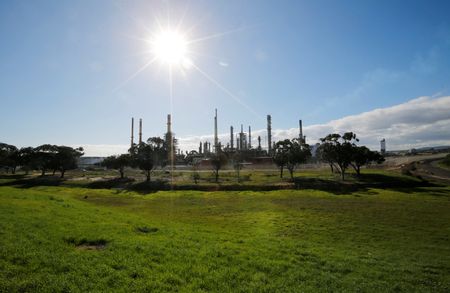By Stephanie Kelly
NEW YORK (Reuters) -Oil prices settled lower on Wednesday, after Oman’s foreign minister said a fresh round of nuclear talks between Iran and the U.S. would take place later this week.
Prices had gained earlier in the session on a CNN report on Tuesday that U.S. intelligence suggests Israel is preparing to strike Iranian nuclear facilities. CNN cited multiple U.S. officials and added that it was not clear whether Israeli leaders have made a final decision.
Brent futures settled down 47 cents, or 0.7%, to $64.91 a barrel. U.S. West Texas Intermediate crude fell 46 cents, or 0.7%, to $61.57.
Iran is the third-largest producer among members of the Organization of the Petroleum Exporting Countries and an Israeli attack could upset flows from the country.
“Now we’re going for another round of peace talks so that offset that premium we put in,” said Phil Flynn, senior analyst with Price Futures Group.
Still, there are concerns Iran could retaliate by blocking oil tanker flows through the Strait of Hormuz, through which Saudi Arabia, Kuwait, Iraq and the United Arab Emirates export crude oil and fuel.
“If tensions were to escalate, we’re likely looking at temporary trade shifts or a supply hit of around 500,000 barrels a day – something OPEC+ could offset fairly quickly,” Rystad Energy analyst Priya Walia said.
The U.S. and Iran have held several rounds of talks this year over Iran’s nuclear programme while U.S. President Donald Trump has revived a campaign of stronger sanctions on Iranian crude exports.
Kazakhstan’s oil production, meanwhile, has risen by 2% in May, an industry source said on Tuesday, defying OPEC+ pressure to reduce output.
Oil prices also fell on Wednesday after bearish U.S. government data on domestic crude, gasoline and distillate inventories, which all posted surprise builds last week. [EIA/S]
Crude inventories rose by 1.3 million barrels, while gasoline stocks rose by about 800,000 barrels and distillate stockpiles added about 600,000 barrels, data from the Energy Information Administration showed.
(Reporting by Stephanie Kelly in New York, Enes Tunagur in London and Jeslyn Lerh in Singapore; additional reporting by Nicole Jao; editing by David Goodman, Andrea Ricci, Joe Bavier, Rod Nickel and Nick Zieminski)

